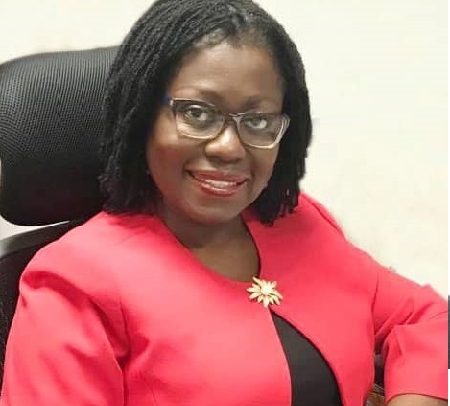Elsie Addo Awadzi
THE BANK of Ghana says it expects the banking industry to be proactive in assessing and managing risks in line with relevant provisions of the Banks and Specialised Deposit-Taking Institutions Act of 2016 and the Corporate Governance Directive of 2018.
Elsie Addo Awadzi, Second Deputy Governor, who gave the advice, was delivering the closing remarks at a webinar hosted by APTIVAA and the Ghana Association of Bankers (GAB) on “Managing Banking Risks In Uncertain Times: The Covid-19 Test Case”.
“In particular, our regulatory framework designates risk oversight as a key governance function, with the board of directors of banks bearing overall responsibility. We expect banks to establish and constantly strengthen risk management structures, policies, strategies, and processes in keeping with the fast evolving business environment. Importantly, we also expect that effective risk management becomes embedded in the business culture of banks, supported by strong management information systems for controlling, monitoring and reporting risks,” she noted, adding, “As regulators, we will remain vigilant in monitoring the risks faced by the banking industry. Let me assure you that you are not alone as you face these risks. It is in our collective interest – banks, your customers, the regulator and our economy – as a whole that you stay on top of these risks.”
Commenting on measures adopted by the BoG in this respect, she said the central bank continued to explore effective means to carry out its mandate to help keep risks in the industry under control.
“For example, our enhanced off-site examinations regime since last year has involved additional reporting by the industry to help ensure that we are able to assess evolving risks even in the absence of on-site examinations during the pandemic. Our periodic stress tests are also helping us assess the level of capital buffers available to absorb potential losses as the pandemic rages on, and our new supervisory surveillance system, ORASS, designed by VIZOR, gives us data mining and analytical capabilities using artificial intelligence, helping us spot early warning signs as they emerge.
“Our new sustainable banking reporting template is also designed to ensure that banks report on their management of environmental and social risks, a critical aspect of Ghana’s sustainable banking principles meant to promote sustainable economic growth. Lastly, we continue to strengthen the capacity of our supervisory team to be able to sharpen their supervisory judgment including their ability to evaluate the effectiveness of risk management and overall governance of banks.”
BY Samuel Boadi


